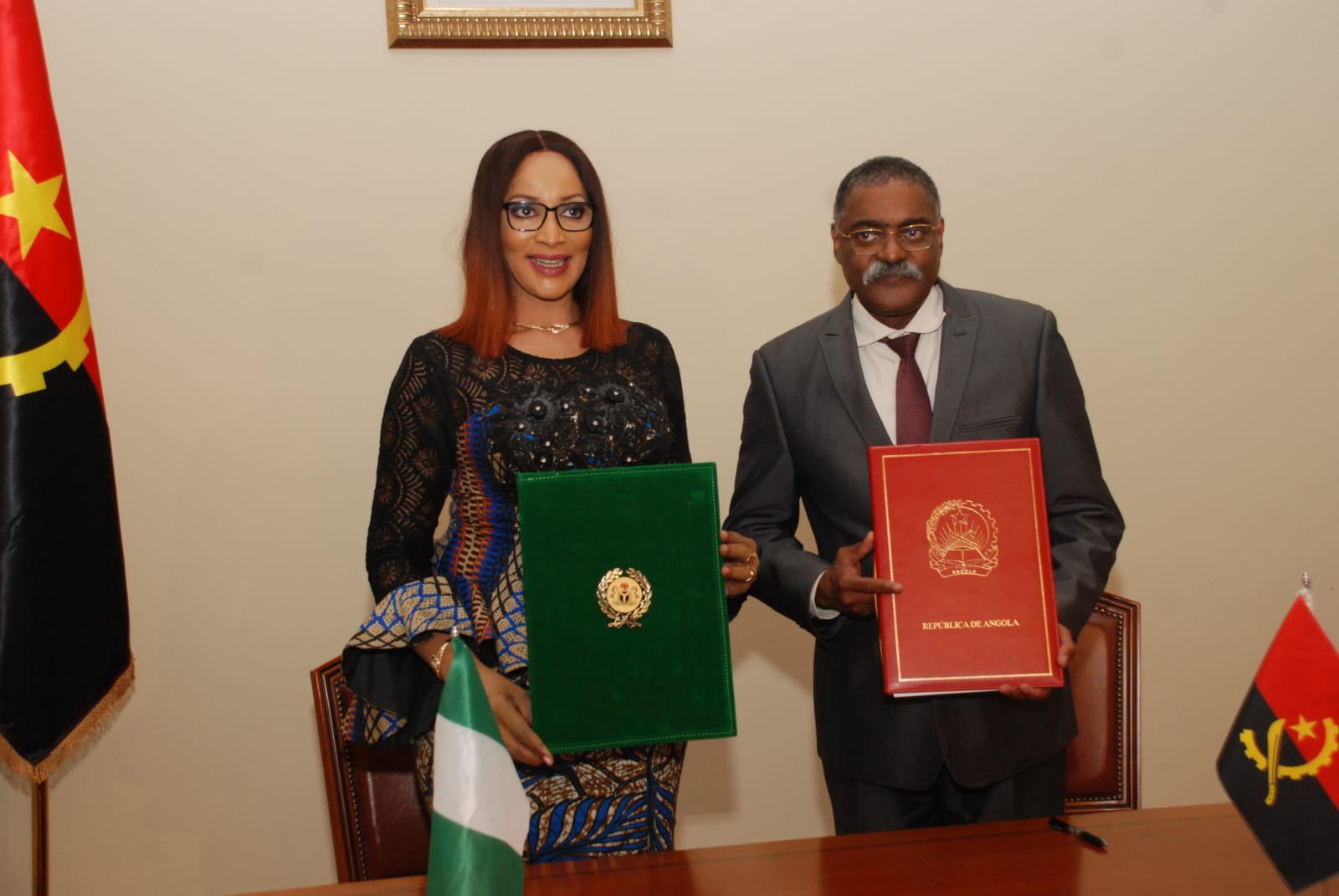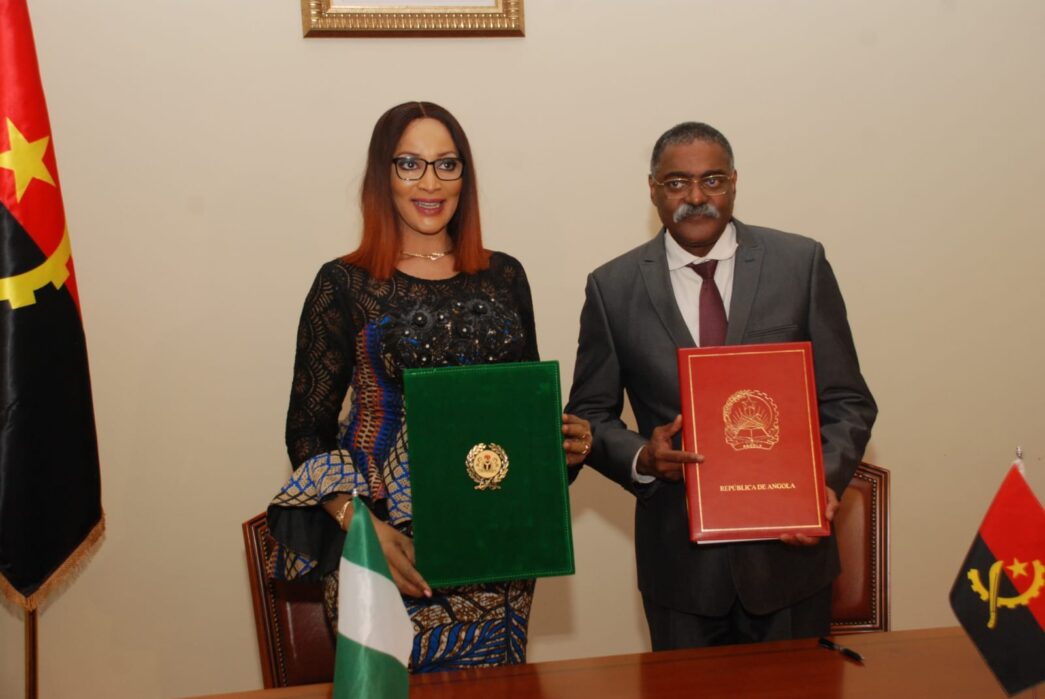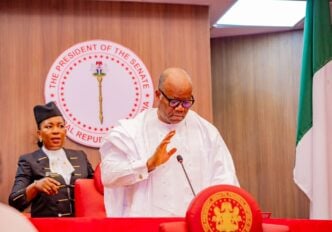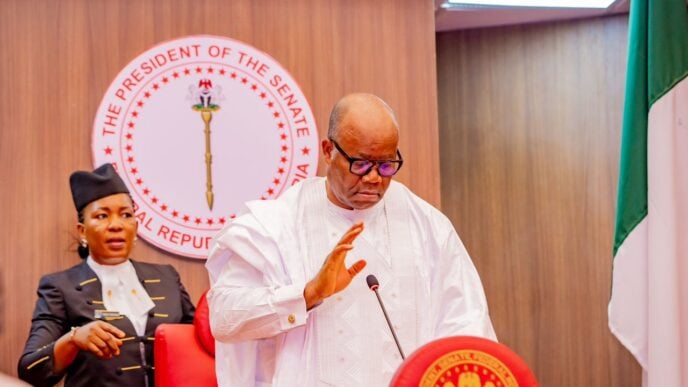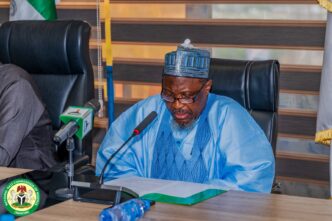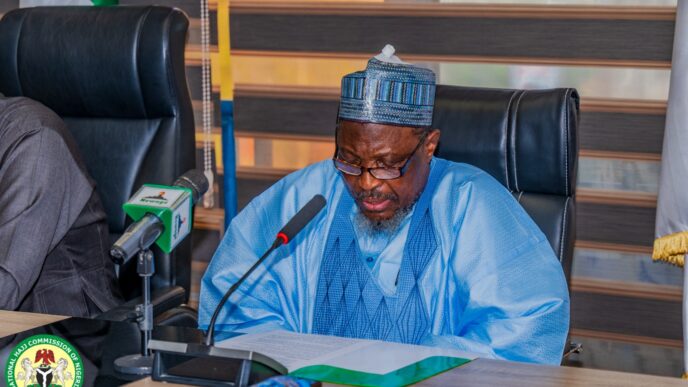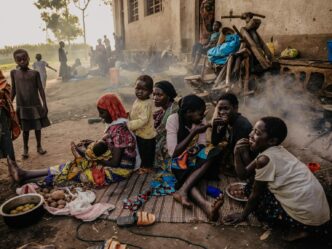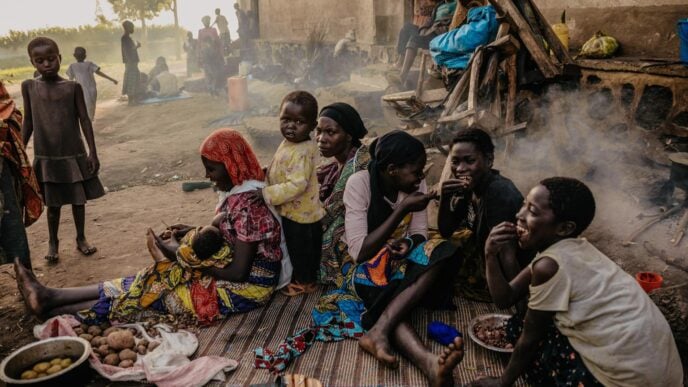Bianca Odumegwu-Ojukwu, Nigeria's minister of state for foreign affairs and Domingos Lopes, Angola's secretary of state for international cooperation, during the signing of the agreements
Nigeria and Angola have signed two agreements to tackle drug trafficking and enhance cultural exchange.
The signing took place during the fifth session of the Nigeria-Angola bilateral economic joint commission held in Luanda from September 9 to 12. Nigeria, Angola sign deals on drug trafficking, cultural exchange
Bianca Odumegwu-Ojukwu, minister of state for foreign affairs, signed on behalf of Nigeria, while Domingos Lopes, Angola’s secretary of state for international cooperation, represented his country.
The Nigerian government also facilitated a sister-city twinning arrangement between Bayelsa state and Namibe province of Angola on socio-economic and cultural development.
Advertisement
It also midwifed another economic cooperation deal between Nasarawa state and the Angolan province of Bengo.
Odumegwu-Ojukwu said the meetings provided an opportunity “not only to reflect on our relations but to identify fresh areas of collaboration in line with our desire for a better future”.
She said the joint commission “provides a framework to strengthen and expand our bilateral ties” with a view to achieving economic growth, job creation and poverty reduction.
Advertisement
The minister described the Bayelsa-Namibe agreement as a step to advance “economic, political, cultural, social, educational and scientific cooperation”.
She said the deals represented a strategic partnership to boost development and tackle poverty in both nations.
“In negotiations, no side gets everything it wants,” she said.
“What we have is a balance of shared responsibilities to move our relations to the next level.”
Advertisement
Odumegwu-Ojukwu said Nigeria will show political will to implement the agreements in line with the renewed hope agenda of President Bola Tinubu.
She expressed confidence that Angola would also sustain its commitment for the benefit of both countries.
Other areas of understanding include visa waivers, simplified customs procedures, trade facilitation, non-oil economic diversification, indigenous oil services promotion, liquefied natural gas (LNG) swaps, gas-to-power projects, transport upgrades and warehousing links.
Advertisement
